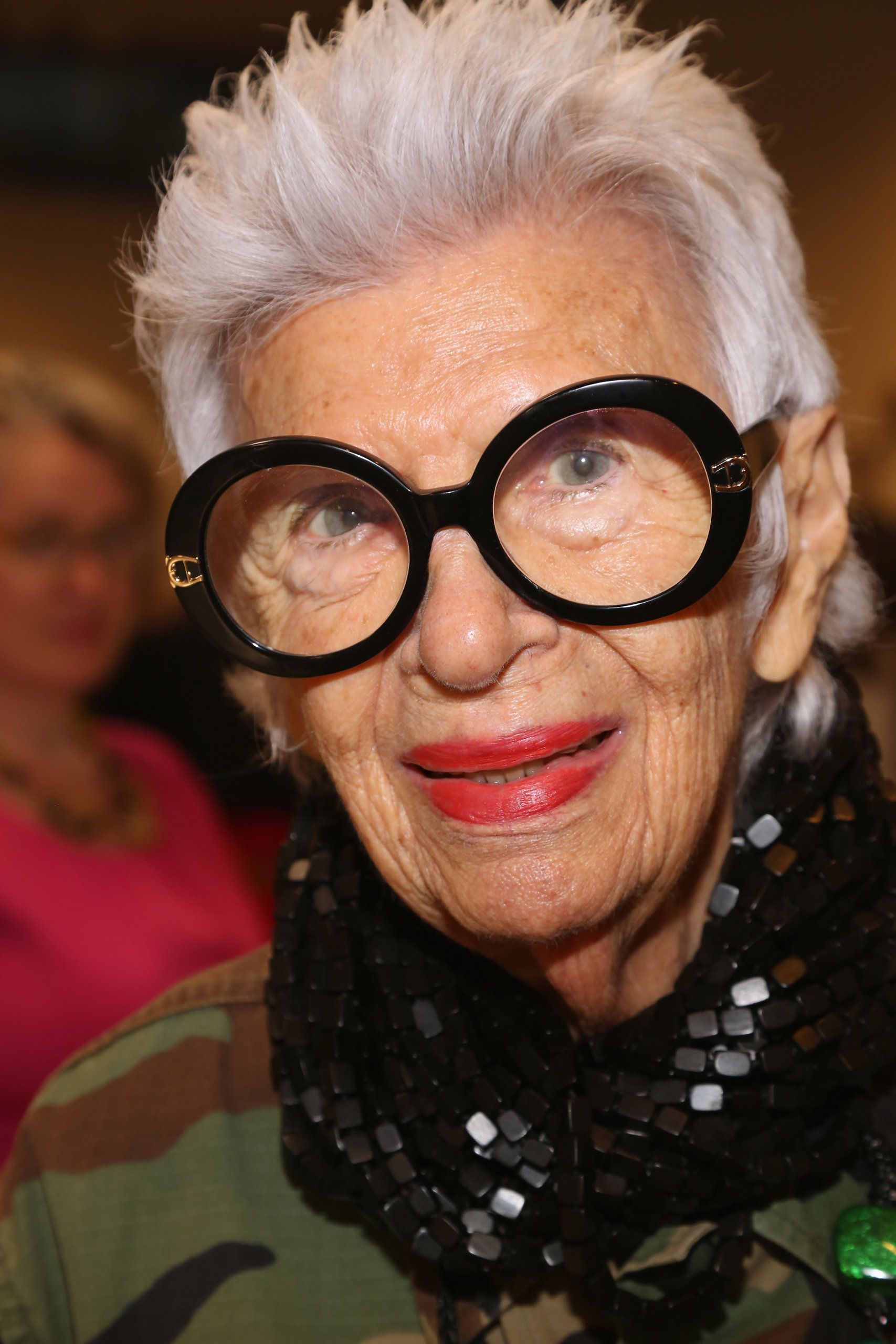Iris Apfel: The Fashioning of a Style Icon

Life, if we are lucky, is long. As the sun gets high for each of us, we hope to look over our shoulder and feel satisfied in not only what we have accomplished, but in the lives we have touched along the way.
For acclaimed interior designer and Palm Beach resident Iris Apfel, the singular moments of her life have combined in such a way that, at 101 years young, she has become a viral sensation and fashion icon spanning six generations.
But Apfel is not merely an icon: She is our icon.
As Dan’s Papers moves through its own expansion and is now publishing in Palm Beach, we couldn’t think of a more fitting person to be our inaugural Dan’s Paper’s Power List ICON.
From her most tender years growing up as an only child in Queens, New York, Apfel was surrounded by beauty and objets d’art. Her father, the owner of a glass and mirror business, was always bringing home eye-catching pieces, and her mother ran a fashion boutique. The family spent a lot of time at her grandparents’ home, where her grandmother allowed her to play with fabric scraps to keep her entertained.
It was through these early childhood experiences that Apfel’s sense of individuality began to form. The feel of textiles and how they could change the shape and mood of a room (or a person) fascinated her, and that fascination was a thread that eventually wove itself into an expansive career of interior design, fabric creation and what is now globally recognized as unparalleled fashion design.
Of course, no icon ever sets out to be iconic. At the outset, Apfel sought to become a writer in the fashion industry. However, one job gave way to another, and before long she found herself in the employ of Elinor Johnson, the interior decorator who ignited Apfel’s long-simmering passion for interior design and patterned fabrics.
During the ’60s, after Apfel had cemented her reputation as an interior designer with a keen sense of style, she launched textile manufacturing company Old World Weavers together with her husband, Carl. Gleefully designing fabrics and giving old furniture pieces new life with her designs, the company took off at a meteoric pace.
Apfel soon found herself traveling the world, creating style just as fast as she was observing it. Soon after opening Old World Weavers, the Apfels were approached by the U.S. Commission of Fine Arts to assist in redecoration and restoration projects in the White House.
Their involvement in these projects continued through nine presidential administrations, from 1951 until the Apfels’ retirement in 1992.
In her travels, Apfel began to collect not only home décor objects, but unique fashion items — a pastime that continues to this day. Her style, now revered by maximalist mavens everywhere, celebrates hedonistic individuality as its cornerstone.
With an eclectic blend of hues and fabrics, Apfel believes that everyone should discover their own unique look, rather than defer to trends or mimicry, and then accessorize it with abandon. She invests in quality pieces, but never loses sight of whether or not an item reflects who she is.
Apfel has perfected the art of mixing in a way that most of us hope to accomplish but fall sadly short: a vintage Valentino blouse here, some off-the-rack shoes there and a hefty portion of any number of playful necklaces and bangle bracelets.
In 2005, her whimsical wardrobe became the subject of an exhibition at the Metropolitan Museum of Art in New York City. And with that, her place in fashion was solidified. The years since then largely read like a bucket list. A home furnishings venture. A French china collaboration.
A statement jewelry collection. A Barbie doll modeled after her likeness. She was even the subject of an Emmy-nominated documentary in 2015, aptly titled Iris. Everything Apfel embarks upon is grounded in her famed “more is more and less is a bore” mantra.
This fervent belief is mirrored in everything from her wardrobe to her furnishings, to the the way she approaches day-to-day life. Her ongoing relevancy of style can largely be attributed to her unapologetic loyalty to the authentic self.
Soon after the Iris documentary premiered and just a few days before his 101st birthday, Apfel’s beloved husband and creative partner Carl died. The two of them had celebrated 68 years of a marriage infused with deep love and mutual respect.
Today, Iris Apfel splits her time between New York City and Palm Beach, and defies all preconceived notions of aging. She continues to be involved in design projects, and her quirky, bold, dynamic sense of fashion continues to inspire fashionistas and interior design enthusiasts alike.
The late astronomer Carl Sagan once famously said that “we are all made of star-stuff.” In Iris Apfel’s case, perhaps some of us more than others.
Please join us in applauding Iris Apfel for a lifetime of success at the Dan’s Papers Palm Beach Inaugural Power List event on March 6 at The Colony Hotel.



